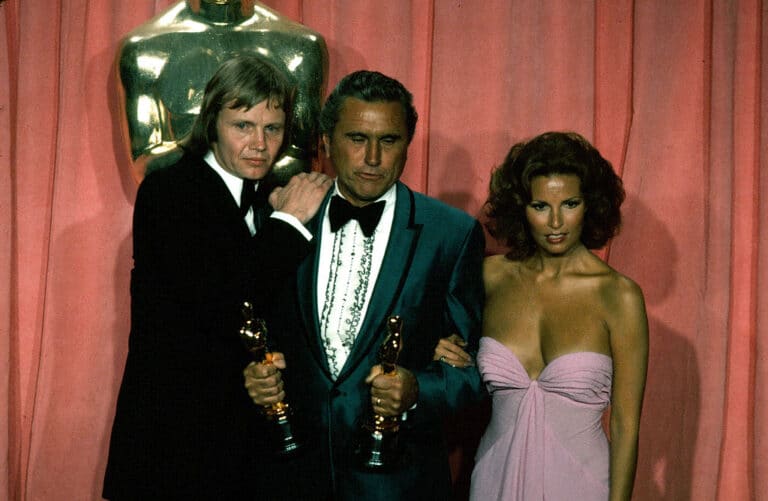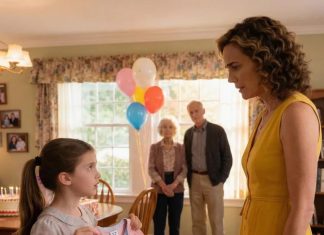A Glimpse into the 1975 Oscars: A Historic Convergence of Glamour and Activism
The 1975 Academy Awards stand as a significant landmark in Hollywood history, not merely for the films celebrated that night but also for the rich tapestry of cultural and political narratives woven into the fabric of the event. Looking back at vintage Oscars photographs, particularly from the 1970s, evokes a profound sense of nostalgia. This era marked a pivotal transition in the film industry, where glamour and activism began to intersect in compelling ways. The Oscars, once considered a celebration of cinematic artistry, began to reflect the tumultuous social climate of the time, revealing a deeper connection between the entertainment industry and the pressing issues facing society.

The Cultural Backdrop of 1975
The 1970s in America were characterized by profound social upheaval. The end of the Vietnam War was on the horizon, civil rights movements were gaining momentum, and the feminist movement was challenging traditional gender roles. The 47th Academy Awards, held on April 8, 1975, became a microcosm of these societal changes. It was a night not only to honor artistic achievements but also to confront the cultural conflicts that defined the era. The glamour of the Oscars provided a stark contrast to the sobering realities outside the gilded walls of the theater.

Dustin Hoffman: The Voice of Dissent
One of the most striking figures at the 1975 Oscars was Dustin Hoffman, nominated for his role in the biographical film *Lenny*. However, instead of reveling in the celebration, Hoffman expressed his disdain for the event itself. He described the Oscars as “ugly” and “grotesque,” likening the ceremony to a superficial beauty contest. This critique was not only a reflection of his personal views but also echoed a larger sentiment among some artists who questioned the value of Hollywood’s glitz in the face of pressing societal issues.

Hoffman’s candid attitude led to some awkward moments during the telecast, particularly when host Frank Sinatra made light of Hoffman’s sentiments by referencing the infamous George C. Scott, who famously rejected his Oscar in 1971. This humorous jab fell flat, highlighting a growing tension in the room. The audience’s reaction demonstrated a shift in the public’s mood, revealing that the lightheartedness traditionally associated with the Oscars was beginning to clash with the seriousness of the ongoing cultural debates.
Political Statements on a Glamorous Stage
Among the notable moments of political activism was the acceptance speech by Bert Schneider, director of the acclaimed documentary *Hearts and Minds*, which tackled the contentious Vietnam War. Schneider’s decision to read a congratulatory telegram from the Viet Cong Ambassador to the American anti-war movement thrust the issue of war front and center during a ceremony usually reserved for celebrating cinematic achievements. This bold move was met with mixed reactions; while some applauded the courage to address such topics, others, including long-time entertainer Bob Hope, were visibly displeased. Hope’s swift rebuttal, delivered by Sinatra, underscored the rift between traditionalists and the emerging progressive voices of Hollywood.
Ingrid Bergman: A Moment of Grace Amidst Tension
In stark contrast to the political tensions that permeated the night, Ingrid Bergman’s acceptance speech for Best Supporting Actress provided a rare moment of grace. Receiving a standing ovation for her role in *Murder on the Orient Express*, Bergman’s presence symbolized a reconciliation of sorts between Hollywood and its past mistakes. Once shunned for her personal life choices, Bergman’s win was seen by many as a poignant acknowledgment of the industry’s previous injustices—a moment of atonement that resonated deeply with the audience. Her humility during the speech, where she acknowledged another nominee as more deserving, showcased her character and earned her the adoration of a new generation of fans.
Reflections on Iconic Imagery
Among the most enduring images from the 1975 Oscars is the photograph of Jon Voight and Raquel Welch, who presented the award for Best Cinematography. Dressed in a classic tuxedo, Voight stood beside Welch, radiant in a vibrant pink gown. While this image exudes the glamour of Hollywood, it has also become the subject of contemporary scrutiny. In today’s context, discussions around gender dynamics and consent have led some social media users to critique Voight’s demeanor, suggesting it reflects outdated norms. This debate encapsulates the broader cultural shift in how we perceive and interpret historical events through a modern lens, illustrating the complexities of nostalgia.
The Legacy of the 1975 Academy Awards
The 47th Academy Awards was a night defined by contrasts—between personal triumphs and societal challenges, between the allure of Hollywood and the harsh realities of the world outside. As the event unfolded, it became increasingly clear that the Oscars were no longer just a ceremonial celebration of film; they were evolving into a platform for larger discussions about culture and politics. The films honored that night, including classics like *The Godfather Part II*, serve as a reminder of the enduring power of storytelling, but they are also framed against a backdrop of a society grappling with significant change.
Ultimately, the 1975 Oscars represent a critical moment in Hollywood history, one where the dazzling lights of the stage were dimmed by the realities of activism and change. The photographs from that night not only capture the glamour of a bygone era but also tell a story of a time when the boundaries of art and activism began to blur, foreshadowing the increasingly intertwined destinies of cinema and societal issues that would define the years to come.

















